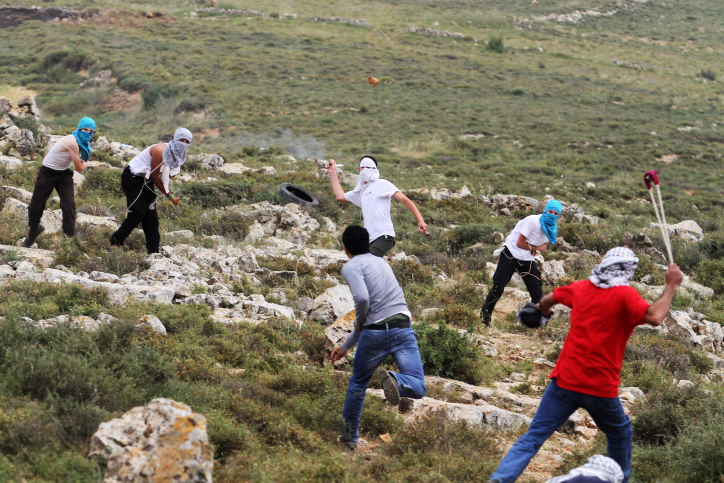By Isaac Johnston
BURIN, West Bank, Nov 27 (NNN-972MAG) – On Oct 16, a group of approximately 15 masked Jewish settlers, armed with metal crowbars and rocks, attacked volunteers from Rabbis for Human Rights, as they helped Palestinian residents of Burin, harvest their olives. I was one of those volunteers.
The attackers hit me on my back and shin with crowbars, and threw a stone at my head that split open the skin, causing a wound that required four stitches. Even as we yelled that we were leaving and pleaded with them not to harm us, they continued to attack. Then they set fire to the olive grove.
I always wondered what the reaction of my own community would be, if something like this happened to me.
As an American Jew, who is critical of Israeli government policies, I have experienced verbal attacks. In high school, because I supported J Street, some of my fellow Jews accosted me and spat out verbal epithets; they called me a kapo or a self-hating Jew, comparing me to Hitler or Mussolini.
But I never imagined my fellow Jews attacking me physically — let alone during the holy days of Sukkot.
Before the incident in Burin, I imagined my criticism of Israeli policies might lead to my being held back for extra questioning, at Ben Gurion Airport, or to some other type of verbal harassment. I wondered whether the Jewish institutions in which I had been raised, and which influenced my views and life path, would issue a statement, if that happened. If the Jewish day schools I attended would comment publicly; or if Hillel, to which I dedicated the last four years of my life, would condemn anything Israel did. I wondered if the Chicago Jewish community would speak up.
Last month’s incident was one of 150 documented violent attacks committed in 2019, by residents of Yitzhar, which is only one of several radical settlements in the West Bank. This attack was meant to terrorise the volunteers and local Palestinians.
The perpetrators did not target our heads to kill, but rather our kneecaps and legs to injure. They did this to indicate that they are the lords of the land — even if that title is exacted at the price of beating an 80 year-old rabbi.
Spokespersons from Yitzhar acknowledged the incident had occurred, although they blamed it on left-wing provocation. Nevertheless, trolls and conspiracy theorists accused me and the other volunteers with Rabbis for Human Rights, of having invented the incident; they used terms like “Pallywood” to indicate their scepticism.
As one friend wrote on Facebook, ” …the presumption of innocence belongs to every person living in Yitzhar, but this young man [referring to me], who I know as a decent and honest young man, is an unreliable source because he is an ‘activist.’”
As an observant Jew, I am struck by the thought that I could walk into Yitzhar tomorrow, put on my tefillin and pray with my attackers or study a page of Talmud with them. We share many of the same religious beliefs, but differ drastically in the way we implement them in our daily lives.
We both believe that our actions bring God’s presence into the world, but their committing violence to do so is completely antithetical to my own beliefs and practices. In fact, their views are the opposite of what I believe is the essence of Judaism.– NNN-972MAG






